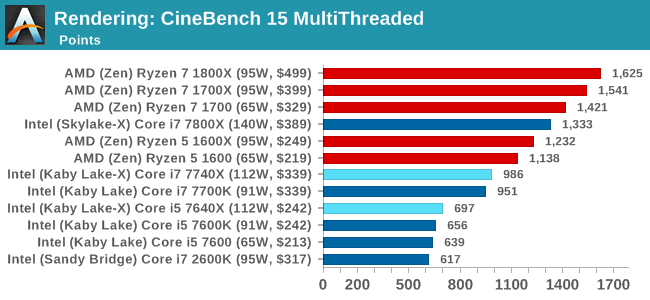... because HEDT and non-HEDT TDPs are not comparable when it comes to comparing performance; the 140W 7800X is less than 10% faster than a 95W 1600X, and that the 112W 7740X is about 3% faster than the 91W 7700K. Also see 7640X vs. 7600K.Why ?? this is a 95W TDP only cpu. Why everyone expecting to have faster than Core i7 7800X (140W TDP) Cinebench MT score ??

Last edited:


